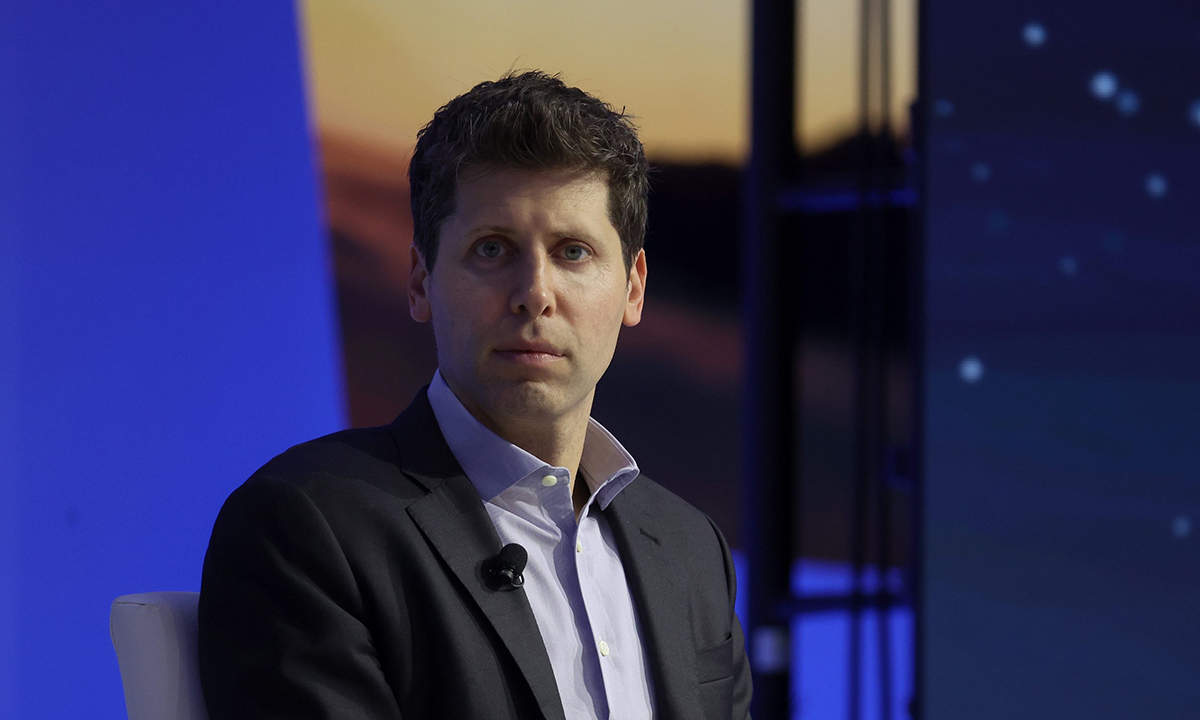
在人工智能聊天機(jī)器人ChatGPT上線幾個(gè)月后,,OpenAI的首席執(zhí)行官山姆·奧特曼(Sam Altman)提交了一家新的風(fēng)險(xiǎn)投資基金的披露材料,。
《財(cái)富》雜志通過(guò)《信息自由法案》(Freedom of Information Act)申請(qǐng)獲得的公開(kāi)文件和文檔顯示,該基金是他的風(fēng)險(xiǎn)投資公司Hydrazine Capital的第四只基金,,于今年3月成立,,在6月底之前的某個(gè)時(shí)候,從硅谷更矚目的有限合伙人之一——密歇根大學(xué)((University of Michigan)的179億美元捐贈(zèng)基金那里得到了一張支票,。該基金還直接投資了OpenAI和OpenAI的企業(yè)風(fēng)險(xiǎn)基金,。這是密歇根大學(xué)向奧特曼的風(fēng)險(xiǎn)投資公司進(jìn)行的第二筆投資,。
這些文件之所以引人注目,有兩大原因,。首先,,它們首次證實(shí),奧特曼的個(gè)人風(fēng)險(xiǎn)投資公司除了他自己,、兄弟和朋友的私人投資外,,還有機(jī)構(gòu)資本。其次,,這些文件表明,最熱門(mén)的人工智能公司之一的首席執(zhí)行官一直在日常工作之余籌集資金,。
“我們與山姆和Hydrazine IV長(zhǎng)期保持著合作關(guān)系,。Hydrazine IV是一只小型基金,密歇根大學(xué)是唯一的外部投資者,,這也是我們現(xiàn)有投資策略的延伸,。”密歇根大學(xué)捐贈(zèng)基金投資高級(jí)常務(wù)董事丹·費(fèi)德(Dan Feder)告訴《財(cái)富》雜志,。目前尚不清楚該基金的具體規(guī)?;蛲顿Y重點(diǎn)。費(fèi)德,、OpenAI,、奧特曼和Hydrazine拒絕透露該基金的更多細(xì)節(jié),也沒(méi)有回應(yīng)置評(píng)請(qǐng)求,。
OpenAI發(fā)言人在發(fā)給《財(cái)富》的一份聲明中表示,,奧特曼“完全專注于OpenAI首席執(zhí)行官的職責(zé),只花了一小部分時(shí)間進(jìn)行投資,。關(guān)于偶有的投資行為,,他做到對(duì)董事會(huì)保持透明,并遵守回避潛在利益沖突的程序,?!?/p>
根據(jù)密歇根大學(xué)向《財(cái)富》雜志提供的一份該捐贈(zèng)基金的所有風(fēng)險(xiǎn)投資基金投資清單,密歇根大學(xué)多年來(lái)向包括紅杉資本(Sequoia Capital),、安德森·霍洛維茨基金(Andreessen Horowitz),、阿克塞爾合伙公司(Accel)、通用催化風(fēng)險(xiǎn)投資(General Catalyst)和Y Combinator管理的基金在內(nèi)的基金共計(jì)投資了數(shù)十億美元,,并向Hydrazine基金投下了兩筆有史以來(lái)最大的風(fēng)險(xiǎn)投資資金:向Hydrazine的第二只基金投了1.05億美元,,又向新成立的第四只基金投了7500萬(wàn)美元。記錄顯示,,該捐贈(zèng)基金還向奧特曼和他兄弟們幾年前成立的投資工具Apollo Projects投資了1870萬(wàn)美元,。在Hydrazine基金的所有披露文件中,,奧特曼都被列為董事。
相比之下,,根據(jù)捐贈(zèng)基金的記錄,,該基金向規(guī)模近14億美元的基金General Catalyst Group IX開(kāi)出了6200萬(wàn)美元的支票,還向規(guī)模8.8億美元的8VC Fund V注資5000萬(wàn)美元,。此外,,該捐贈(zèng)基金還向規(guī)模15億美元的基金Andreessen Horowitz Fund V注資1530萬(wàn)美元。對(duì)該基金的風(fēng)險(xiǎn)投資歷史的回顧發(fā)現(xiàn),,該基金很少向個(gè)別風(fēng)險(xiǎn)投資基金開(kāi)出超過(guò)5000萬(wàn)美元的支票,,盡管它曾向Y Combinator、成為常青美元基金(Chengwei Evergreen Capital)和Eclipse Ventures等公司開(kāi)過(guò)幾次這樣的支票,。
上個(gè)月,,隨著奧特曼突然被OpenAI解雇,隨后又于11月復(fù)職,,他的個(gè)人風(fēng)險(xiǎn)投資成為了外界猜測(cè)的焦點(diǎn),。最初,OpenAI董事會(huì)聲稱,,奧特曼對(duì)董事會(huì)“并非自始至終保持坦誠(chéng)”,。
今年夏天,奧特曼在接受The Information采訪時(shí)談到了他的個(gè)人投資,,他說(shuō)他注意到自己的投資可能產(chǎn)生的利益沖突,。“一般來(lái)說(shuō),,我認(rèn)為解決利益沖突的方法就是避免投資與你所經(jīng)營(yíng)的公司直接相關(guān)的事情,,并披露所有信息?!眾W特曼當(dāng)時(shí)表示,。
在開(kāi)始全職運(yùn)營(yíng)OpenAI之前,,奧特曼曾擔(dān)任硅谷孵化器Y Combinator的總裁,,做過(guò)很長(zhǎng)時(shí)間的投資人,。2012年,,他與自己的兄弟,、萊迪思(Lattice)的聯(lián)合創(chuàng)始人兼首席執(zhí)行官杰克·奧特曼(Jack Altman)共同創(chuàng)立了Hydrazine Capital,,不過(guò)目前尚不清楚杰克·奧特曼是否仍是投資人,。根據(jù)領(lǐng)英(LinkedIn)的信息,,合伙人萊恩·科恩(Ryan Cohen)也是Hydrazine和Apollo Projects的投資人,。但科恩沒(méi)有回應(yīng)置評(píng)請(qǐng)求,。(財(cái)富中文網(wǎng))
譯者:中慧言-王芳
在人工智能聊天機(jī)器人ChatGPT上線幾個(gè)月后,OpenAI的首席執(zhí)行官山姆·奧特曼(Sam Altman)提交了一家新的風(fēng)險(xiǎn)投資基金的披露材料。
《財(cái)富》雜志通過(guò)《信息自由法案》(Freedom of Information Act)申請(qǐng)獲得的公開(kāi)文件和文檔顯示,,該基金是他的風(fēng)險(xiǎn)投資公司Hydrazine Capital的第四只基金,,于今年3月成立,在6月底之前的某個(gè)時(shí)候,,從硅谷更矚目的有限合伙人之一——密歇根大學(xué)((University of Michigan)的179億美元捐贈(zèng)基金那里得到了一張支票,。該基金還直接投資了OpenAI和OpenAI的企業(yè)風(fēng)險(xiǎn)基金。這是密歇根大學(xué)向奧特曼的風(fēng)險(xiǎn)投資公司進(jìn)行的第二筆投資,。
這些文件之所以引人注目,,有兩大原因。首先,,它們首次證實(shí),,奧特曼的個(gè)人風(fēng)險(xiǎn)投資公司除了他自己、兄弟和朋友的私人投資外,,還有機(jī)構(gòu)資本,。其次,這些文件表明,,最熱門(mén)的人工智能公司之一的首席執(zhí)行官一直在日常工作之余籌集資金。
“我們與山姆和Hydrazine IV長(zhǎng)期保持著合作關(guān)系,。Hydrazine IV是一只小型基金,,密歇根大學(xué)是唯一的外部投資者,這也是我們現(xiàn)有投資策略的延伸,?!泵苄髮W(xué)捐贈(zèng)基金投資高級(jí)常務(wù)董事丹·費(fèi)德(Dan Feder)告訴《財(cái)富》雜志。目前尚不清楚該基金的具體規(guī)?;蛲顿Y重點(diǎn),。費(fèi)德、OpenAI,、奧特曼和Hydrazine拒絕透露該基金的更多細(xì)節(jié),,也沒(méi)有回應(yīng)置評(píng)請(qǐng)求。
OpenAI發(fā)言人在發(fā)給《財(cái)富》的一份聲明中表示,,奧特曼“完全專注于OpenAI首席執(zhí)行官的職責(zé),,只花了一小部分時(shí)間進(jìn)行投資。關(guān)于偶有的投資行為,,他做到對(duì)董事會(huì)保持透明,,并遵守回避潛在利益沖突的程序?!?/p>
根據(jù)密歇根大學(xué)向《財(cái)富》雜志提供的一份該捐贈(zèng)基金的所有風(fēng)險(xiǎn)投資基金投資清單,,密歇根大學(xué)多年來(lái)向包括紅杉資本(Sequoia Capital)、安德森·霍洛維茨基金(Andreessen Horowitz),、阿克塞爾合伙公司(Accel),、通用催化風(fēng)險(xiǎn)投資(General Catalyst)和Y Combinator管理的基金在內(nèi)的基金共計(jì)投資了數(shù)十億美元,,并向Hydrazine基金投下了兩筆有史以來(lái)最大的風(fēng)險(xiǎn)投資資金:向Hydrazine的第二只基金投了1.05億美元,又向新成立的第四只基金投了7500萬(wàn)美元,。記錄顯示,,該捐贈(zèng)基金還向奧特曼和他兄弟們幾年前成立的投資工具Apollo Projects投資了1870萬(wàn)美元。在Hydrazine基金的所有披露文件中,,奧特曼都被列為董事,。
相比之下,根據(jù)捐贈(zèng)基金的記錄,,該基金向規(guī)模近14億美元的基金General Catalyst Group IX開(kāi)出了6200萬(wàn)美元的支票,,還向規(guī)模8.8億美元的8VC Fund V注資5000萬(wàn)美元。此外,,該捐贈(zèng)基金還向規(guī)模15億美元的基金Andreessen Horowitz Fund V注資1530萬(wàn)美元,。對(duì)該基金的風(fēng)險(xiǎn)投資歷史的回顧發(fā)現(xiàn),該基金很少向個(gè)別風(fēng)險(xiǎn)投資基金開(kāi)出超過(guò)5000萬(wàn)美元的支票,,盡管它曾向Y Combinator,、成為常青美元基金(Chengwei Evergreen Capital)和Eclipse Ventures等公司開(kāi)過(guò)幾次這樣的支票。
上個(gè)月,,隨著奧特曼突然被OpenAI解雇,,隨后又于11月復(fù)職,他的個(gè)人風(fēng)險(xiǎn)投資成為了外界猜測(cè)的焦點(diǎn),。最初,,OpenAI董事會(huì)聲稱,奧特曼對(duì)董事會(huì)“并非自始至終保持坦誠(chéng)”,。
今年夏天,,奧特曼在接受The Information采訪時(shí)談到了他的個(gè)人投資,他說(shuō)他注意到自己的投資可能產(chǎn)生的利益沖突,?!耙话銇?lái)說(shuō),我認(rèn)為解決利益沖突的方法就是避免投資與你所經(jīng)營(yíng)的公司直接相關(guān)的事情,,并披露所有信息,。”奧特曼當(dāng)時(shí)表示,。
在開(kāi)始全職運(yùn)營(yíng)OpenAI之前,,奧特曼曾擔(dān)任硅谷孵化器Y Combinator的總裁,做過(guò)很長(zhǎng)時(shí)間的投資人,。2012年,,他與自己的兄弟、萊迪思(Lattice)的聯(lián)合創(chuàng)始人兼首席執(zhí)行官杰克·奧特曼(Jack Altman)共同創(chuàng)立了Hydrazine Capital,不過(guò)目前尚不清楚杰克·奧特曼是否仍是投資人,。根據(jù)領(lǐng)英(LinkedIn)的信息,,合伙人萊恩·科恩(Ryan Cohen)也是Hydrazine和Apollo Projects的投資人。但科恩沒(méi)有回應(yīng)置評(píng)請(qǐng)求,。(財(cái)富中文網(wǎng))
譯者:中慧言-王芳
Just a few months after the artificial-intelligence-powered chatbot ChatGPT went live, the CEO of OpenAI, Sam Altman, filed disclosure materials for a new venture capital fund.
That fund, his venture firm Hydrazine Capital’s fourth fund, was launched in March, and sometime before the end of June got a check from one of Silicon Valley’s more noteworthy limited partners, the University of Michigan’s $17.9 billion endowment, which has also invested directly in OpenAI and in OpenAI’s corporate venture fund, according to public filings and documents obtained by Fortune via a Freedom of Information Act request. That check is the second investment the University of Michigan has made into Altman’s venture capital firm.
The documents are notable for two reasons. First, they offer the first confirmation that Altman’s personal venture firm is investing institutional capital in addition to his own or that of his brothers and friends. Second, they go to show that the CEO of one of the hottest AI companies around has been fundraising outside his day job.
“We have a longstanding relationship with Sam and Hydrazine IV. Hydrazine IV is a small fund in which the University of Michigan is the only outside investor, and this is an extension of our ongoing investment strategies,” Dan Feder, senior managing director of investments at the University of Michigan’s endowment, told Fortune. It’s unclear the fund’s exact size or focus. Feder, OpenAI, Altman, and Hydrazine declined to share more details of the fund or didn’t respond to requests for comment.
In a statement to Fortune, an OpenAI spokeswoman said that Altman “is fully focused on his role as CEO of OpenAI and spends only a small fraction of his time investing. He maintains transparency with the board about his occasional investments and adheres to a process for managing potential conflicts of interest.”
The University of Michigan, which over the years has collectively invested billions into funds including those managed by Sequoia Capital, Andreessen Horowitz, Accel, General Catalyst, and Y Combinator, has written two of its largest-ever venture capital fund checks into Hydrazine funds: a $105 million check into Hydrazine’s second fund and, most recently, the $75 million into Hydrazine’s fourth fund, according to a list of all the endowment’s venture capital fund investments that was provided to Fortune. The endowment has also invested $18.7 million in an investment vehicle called Apollo Projects that Altman and his brothers set up a few years ago, records show. Altman is listed as director on all of the Hydrazine funds’ disclosure documents.
Comparatively, the endowment has written a $62 million check into General Catalyst Group IX, a nearly $1.4 billion fund, according to endowment records; a $50 million check into 8VC Fund V, a $880 million fund; and a $15.3 million check into Andreessen Horowitz Fund V, a $1.5 billion fund. A review of the endowment’s venture capital investment history found that the endowment rarely writes individual checks over $50 million to individual venture capital funds, although it has done so a handful of times to firms including Y Combinator, Chengwei Evergreen Capital, and Eclipse Ventures.
Altman’s individual venture investments surfaced as an item of speculation last month amid Altman’s sudden termination, then later reinstatement, at OpenAI in November. Initially, OpenAI’s board claimed that Altman “was not consistently candid” with the board.
Altman this summer addressed his personal investing in an interview with The Information, saying he is mindful of conflicts of interest that may arise from his investments. “Generally, I think the approach to conflict of interest is just avoid things that are directly an issue with the company you’re running and disclose everything,” Altman said at the time.
Altman, a former president of Silicon Valley incubator Y Combinator before he started running OpenAI full-time, has been an investor for a long time. He set up Hydrazine Capital in 2012 with his brother and the cofounder and CEO of Lattice, Jack Altman, though it’s unclear whether Jack Altman is still an investor. Partner Ryan Cohen is also an investor at Hydrazine and Apollo Projects, according to LinkedIn. He did not respond to a request for comment.






